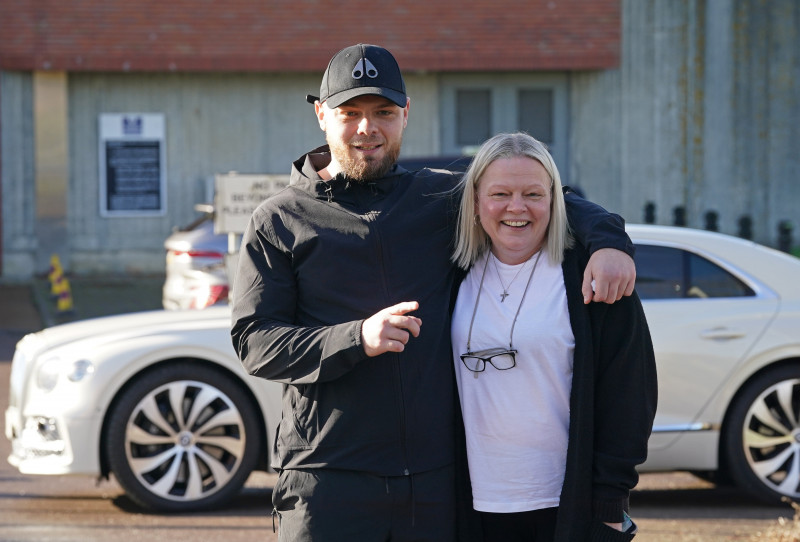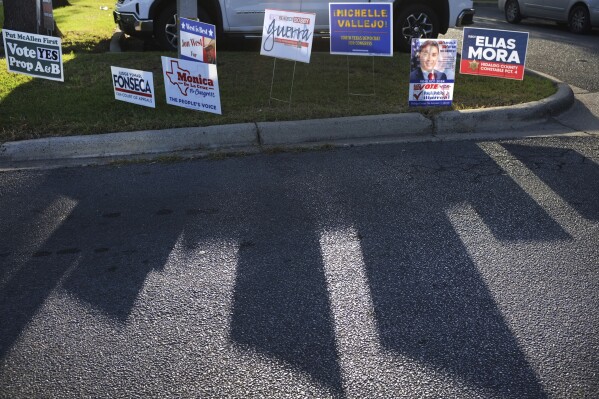Your support helps us to tell the story
Support NowThis election is still a dead heat, according to most polls. In a fight with such wafer-thin margins, we need reporters on the ground talking to the people Trump and Harris are courting. Your support allows us to keep sending journalists to the story.
The Independent is trusted by 27 million Americans from across the entire political spectrum every month. Unlike many other quality news outlets, we choose not to lock you out of our reporting and analysis with paywalls. But quality journalism must still be paid for.
Help us keep bring these critical stories to light. Your support makes all the difference.
An inmate gave a “big up” to Sir Keir Starmer and posed with a Bentley after being released from prison early as part of the government’s policy to free up prison space.
Daniel Dowling-Brooks, 29, was celebrating with his friends, mother and sister on Tuesday after they picked him up in a convoy of a white Bentley and black Mercedes G-Class outside of HM Prison Swaleside.
The 29-year-old told reporters he had been in prison on the Isle of Sheppey, Kent, for seven years for kidnap and grievous bodily harm of someone who owed money to his friend – however, he was leaving seven weeks earlier than planned.
The father-of-two said the first thing he would do is “go to McDonald’s, go to my hostel and follow all the rules”.
On being released, he said: ‘I kidnapped someone who owed my friend money. I tied him up and had him at gunpoint. I beat him up. It was bad but not as bad as they made out. I’m so sorry for it though.

“I’m changed. Big up Keir Starmer, I am delighted to be released early.”
Asked how he felt about being out of prison, he added: “I feel good man. I feel happy.”
He added that he would now spend more time with his two children and his friends.
He also expressed regret over his crime and described feeling bad.
Asked on Tuesday if the prime minister was happy that he was being “bigged up” by criminals, Downing Street said: “No.”
The PM’s official spokesperson said that Sir Keir “shares the public anger” over the situation, which he said ministers had inherited from the last Tory government, but he added that the prison crisis was so extreme that “there was no choice not to act”.
Dowling-Brooks is among the around 1,100 inmates who are expected to be let out early on Tuesday in an attempt to ease overcrowding in prisons.
On the same day, justice secretary Shabana Mahmood launched a review into sentencing, which will look at handing out more punishments to offenders outside of prison.

The review, chaired by former justice secretary David Gauke, aims to explore tougher punishments outside prison while making sure there is space to incarcerate the most dangerous offenders.
Ms Mahmood told BBC Radio 4’s Today: “We have to expand the use of punishment outside prison, and I’m very clear that that has to maintain the confidence of the public. People still have to know that you are being punished for breaking the laws of our land, even if you’re not serving time in custody. There are real consequences, that you really feel the loss of your liberty still.”
Tags are already being used to supervise and monitor offenders serving sentences outside prison but the review will consider bringing in emerging technologies used in other countries, she said.
Asked if she was taking a new approach and wanted fewer people incarcerated in Britain, she said that the rate of increase is such that “nobody can keep up with demand”.

The prison population is increasing by 4,500 every year and the government has committed to creating 14,000 additional prison spaces.
It is also looking to foreign jurisdictions for ideas, such as in Texas where authorities have used good behaviour credits.
Punishments outside prison could involve using wristwatches or apps that “nudge” offenders to ask if they have complied with licence conditions, in addition to sobriety tags or home detention curfews.
Community alternatives and fines instead of prison time will also be examined, as will the impact of short custodial sentences.

The review will also consider whether more can be done to tackle prolific offending and crimes committed against women and girls by drawing up sentences that reflect the severity of the act.
Ms Mahmood announced plans in July to temporarily reduce how much of their sentences inmates must serve behind bars from 50 per cent to 40 per cent as the Ministry of Justice said overcrowding had pushed jails to the “point of collapse”.
The first release of around 1,700 prisoners from jails across England and Wales started on 10 September. The latest tranche, starting on Tuesday, has expanded eligibility to include those serving sentences of five years or more.
Ms Mahmood said mistakes that led to the release in error of 37 prisoners as part of the scheme to ease overcrowding have been “ironed out”.
“That issue has been sorted and it has been resolved, and for the releases that are taking place today, that is not a mistake that will occur again,” she told Times Radio.

The rates of recall in the cohort of early releases are “broadly in line” with usual prison releases, she told LBC after a probation officers’ union said a “significant number” had been recalled to custody.
Prisons are expected to reach critical capacity again by July.
The number of prison spaces fluctuates but it is understood there are currently about 89,000 in total.
The findings of the sentencing review will be submitted by spring of next year. The results of the review are expected to take effect by March 2026 at the earliest.
Disclaimer: The copyright of this article belongs to the original author. Reposting this article is solely for the purpose of information dissemination and does not constitute any investment advice. If there is any infringement, please contact us immediately. We will make corrections or deletions as necessary. Thank you.



